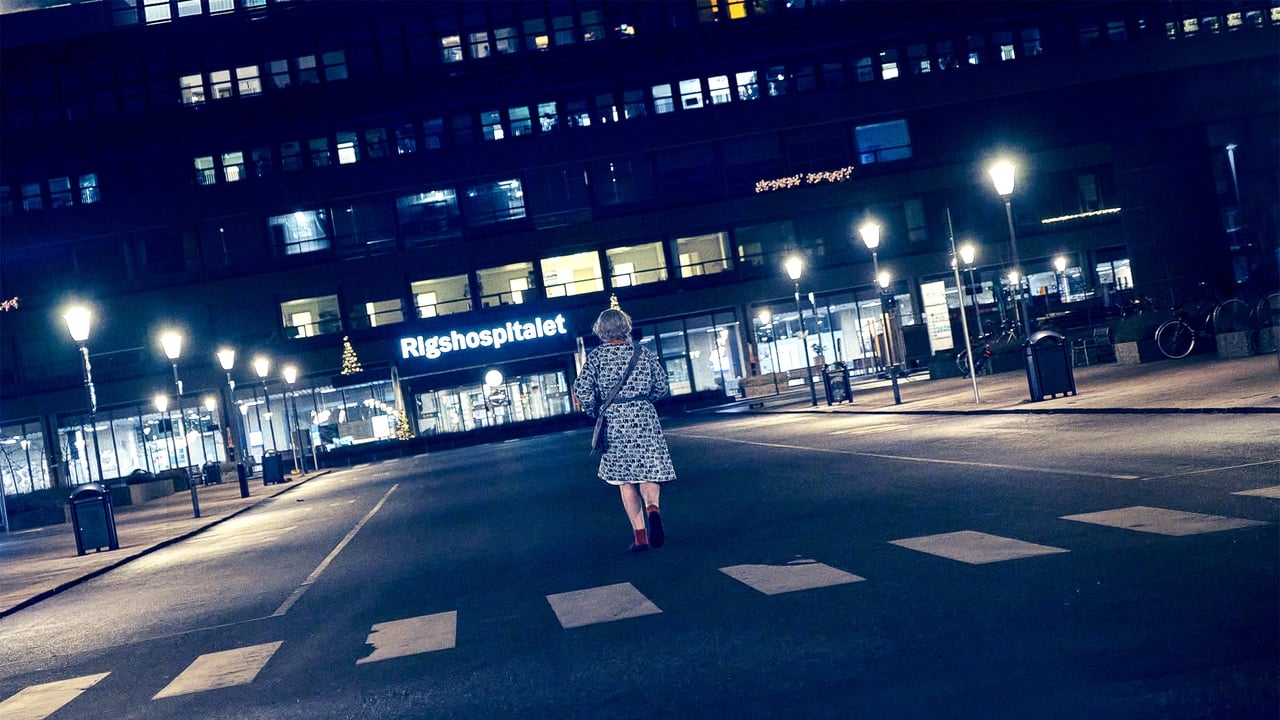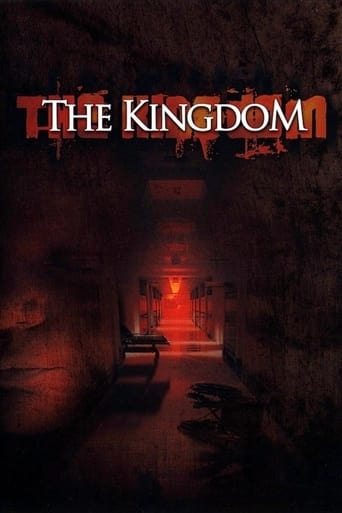

I like the storyline of this show,it attract me so much
... View MoreIn truth, there is barely enough story here to make a film.
... View MoreThe film's masterful storytelling did its job. The message was clear. No need to overdo.
... View MoreOne of the best movies of the year! Incredible from the beginning to the end.
... View MoreThe sound quality the film's lack of a full color spectrum the jittery camera work — initially it seemed I was watching a student film from 10 years ago shot with a mid-1990's model cellphone.It didn't take long for the story, direction, comedic timing, quirkiness (and subtitles) to take hold. Between the occasional interaction of hospital's 2 dishwashing staff and the new physician's initiation ritual, I was hooked. I'm assuming they didn't have much of a production budget, but it didn't matter — I thoroughly enjoyed this miniseries.I've read they hacked 4 hours out of it and made a 5 hour movie for release to the US and British markets — I'm glad I was able to see the 8 episodes (9 hours) as originally broadcast, there isn't any of "Riget" I'd want to miss. Neither would I want to watch the 2004 homogenized Stephen King 13 episode version — I suspect it bears only a slight resemblance to the original. I can see how this series wouldn't necessarily appeal to everyone, just glad I'm in the group who gets-it :-)The 2nd season was good, but I enjoyed season 1 more. Series 2 was a bit more tongue-in-cheek; much of it funny, some of the gags fell flat. At least the pacing was quick as when it annoys, it's not for long. I think the funniest season-2 scene for me involved poison and some confusion over coffee cups...If there's ever another remake, I hope it's a Danish one with the same director, otherwise, they shouldn't bother. Maybe make a cleaner print of the original for digital release and put it on every streaming service available
... View MoreIf you get a chance to watch this TV series, please do so as you will be well rewarded. More bizarre than Twin Peaks, this series of 8 episodes is eerie and unsettling throughout, always surprising you with the next unexpected, supernatural revelation. It is an early showcase for the talent Von Trier was to show in his later movies and contains many unforgettable characters from Stig Helmer to Udo Kier's baby calling for its mama to the precognitive Down's syndrome children.Stephen King's American remake Kingdom Hospital doesn't hold a candle to Von Trier's original.
... View MoreAt the time of seeing the first series of The Kingdom (1994), and then later the second series (1997), the only films of Lars von Trier that I was familiar with were Breaking the Waves (1996) and Dancer in the Dark (2000). Certainly, I would rate both of these particular films incredibly well; however, after having seen some of von Trier's other films - such as his earlier, self-referential masterworks The Element of Crime (1984) and Europa (1991), and his more confrontational films The Idiots (1997) and Dogville (2003) - I can begin to better appreciate the context of which The Kingdom fits into his career as a whole.Really, The Kingdom is a transitional work between the visually elaborate and enigmatic films that made up the bulk of his work from 1983-1991, and the second, more celebrated phase of his career that saw the drafting of the Dogme 95 manifesto and the more minimal, forward thinking films of the last ten years. On the one hand, The Kingdom shows the early influence of Dogme with the use of hand-held cinematography and multi-camera cross-cutting, as well as the use of actual locations and the more naturalistic elements of the performances. Nevertheless, at the same time it brings to mind ideas familiar from The Element of Crime and the earlier self-reflexive, meta-textual horror/satire of Epidemic (1988), with the references to ghosts, death and an all encompassing, age-old evil. However, unlike any of his work for cinema - which often has a broader intent and more rigid sense of experimentation - The Kingdom is meant, first and foremost, as a work of pure entertainment. There's none of the more obvious sense of cinematic experimentation, polemic or emotional manipulation used so skilfully in his feature-length work, with the story instead relying on great characters, moments of absurd or entirely deadpan humour, and a continual sense of mystery and suspense.The Kingdom II picks up where the first series left off, and yes, it is vital that you see the first series before embarking on the second or you'll have no idea what is going on! Basically, it's more of the same, albeit it, much funnier than the first and with more violence. The ghosts - as you should remember from the first series - are now free to take a greater precedence over the plot, as Mrs Drusse fights her own illness, teetering on the brink of life and death but still trying to discover the secrets of the hospital. Elsewhere, von Trier regular, the late Ernst-Hugo Järegård, returns as the malevolent Dr Helmer, who becomes even more of a central figure to the proceedings as Dr. Moesgaard is forced into therapy. The real treasure of the cast however is Udo Kier, who not only returns as the evil Aage Krüger, but also as Little Brother, Judith's deformed baby, and spiritual brother to the tormented Mary Jenson.Because at least three of the principal actors have died since the completion of the second series, the question is; will there ever be an end? The last episode ends, much like the final episode to the first series, with a cliff-hanger. Lars' intention was that there would be a third series, making the Kingdom an effective trilogy. However, the plan has no doubt been scrapped given the loss of lead performers. Although neither instalment of the series offers any kind of ultimate closure, they still offer a great deal of entertainment; with the bold and atmospheric direction of von Trier and his assistant Morten Arnfred creating tension, terror and an eerie atmosphere that complements the dark aspects of the series perfectly.
... View MoreThe only thing this series demonstrates is: - Lars von Trier wanted to dabble in something like Twin Peaks - Lars von Trier is capable of making lousy TV too.The television format has a way of liberating everyone's inner hack. The 'running series' presents difficulties that are always solved conventionally. Namely, execs & advertisers live in horror that a narrative payoff will come too quickly, which produces two horrible cop-outs: a teaser before every commercial (which threatens that something is about to happen), followed by the complete dissipation of that potential after the commercials are over; and the chronically-delayed promise that something of interest will occur over every ten or twenty episodes. That payout is simply too low.Although cable isn't hampered by commercials, there is still a deep fear of giving anything away and losing viewers. This fosters and grows viewers that clear time from their lives to receive each new worthless update. I have found each new "series of excellence" (or so I'm told by critics and friends - Soparanos, Lost, Deadwood, Six Feet Under) to be just as crappy as regular mediocre TV; ruined by the format itself. I watch these shows and all I see is the meandering which occurs as storyteller strings you along with delays and non-committals, etc.. Then, in disappointment, I picture the conventional minds that would tune in again and again.Do I have stronger eyes than most people? How on earth could von Trier make this crap after Zentropa? If I see one more "Ghost Needs Closure" movie, I'm going to help the creators become ghosts themselves.
... View More